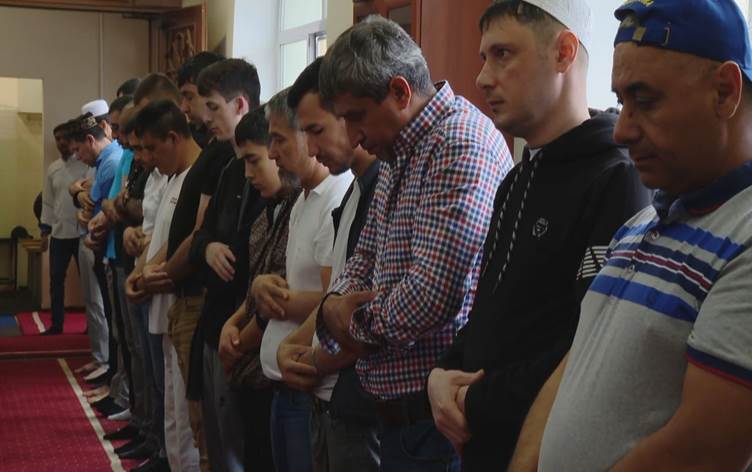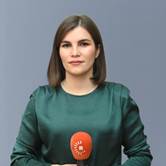KYIV, Ukraine - Muslims in the Ukrainian capital came together to perform Eid prayer on Saturday morning, praying for a lasting triumph for their country that continues to be locked in a war with Russia for five months now.
A large number of Muslims living in Kyiv are those who abandoned homes in Crimea in 2015 and sought shelter in the Ukrainian capital following the Russian takeover of the southern region.
"I hope this war will end as soon as possible. I have six sons and the eldest among them is a Ukrainian army soldier. All we wish is for this war to end," Anas Abu Warda, a Palestinian man who moved to Ukraine 30 years ago, told Rudaw on Saturday.
After finishing the Eid feast and the morning prayers, family, friends, and neighbors then visit each other's homes. Men, women, and children dress in brand new outfits specifically bought for the special holiday.
"Around 1.5 million Muslims live in Ukraine, 500,000 of which are from Crimea... 300,000 from Azerbaijan and the rest are from the Arab countries, Iran, Uzbekistan, Pakistan and the African countries," Emad Abu Alrub, member of Cabinet of Ministers Council for religion, national minorities, and education said.
Hamza Issa, 48, moved to Ukraine from Palestine in 1992 to pursue higher education in the eastern European country. He is now a surgeon.
The father of eight moved to Kyiv from Donbas in 2014 following escalations.
Millions of Muslims across the globe celebrated Eid al-Adha, which is one of the two main holidays in Islam.
They celebrate the four-day feast by slaughtering livestock and disturbing the meat among the poor, relatives, and neighbors.
Muslims in Kyiv slaughtered 250 sheep and 55 calves to be given to 5,000 destitute and needy families in Kyiv oblast, according to Issa.
Russia’s invasion of Ukraine began on February 24. The Office of the UN High Commissioner for Human Rights (OHCHR) on June 7 said over 4 thousand civilians were killed and more than 5 thousand others were injured as a result of the conflict across Ukraine.









Comments
Rudaw moderates all comments submitted on our website. We welcome comments which are relevant to the article and encourage further discussion about the issues that matter to you. We also welcome constructive criticism about Rudaw.
To be approved for publication, however, your comments must meet our community guidelines.
We will not tolerate the following: profanity, threats, personal attacks, vulgarity, abuse (such as sexism, racism, homophobia or xenophobia), or commercial or personal promotion.
Comments that do not meet our guidelines will be rejected. Comments are not edited – they are either approved or rejected.
Post a comment